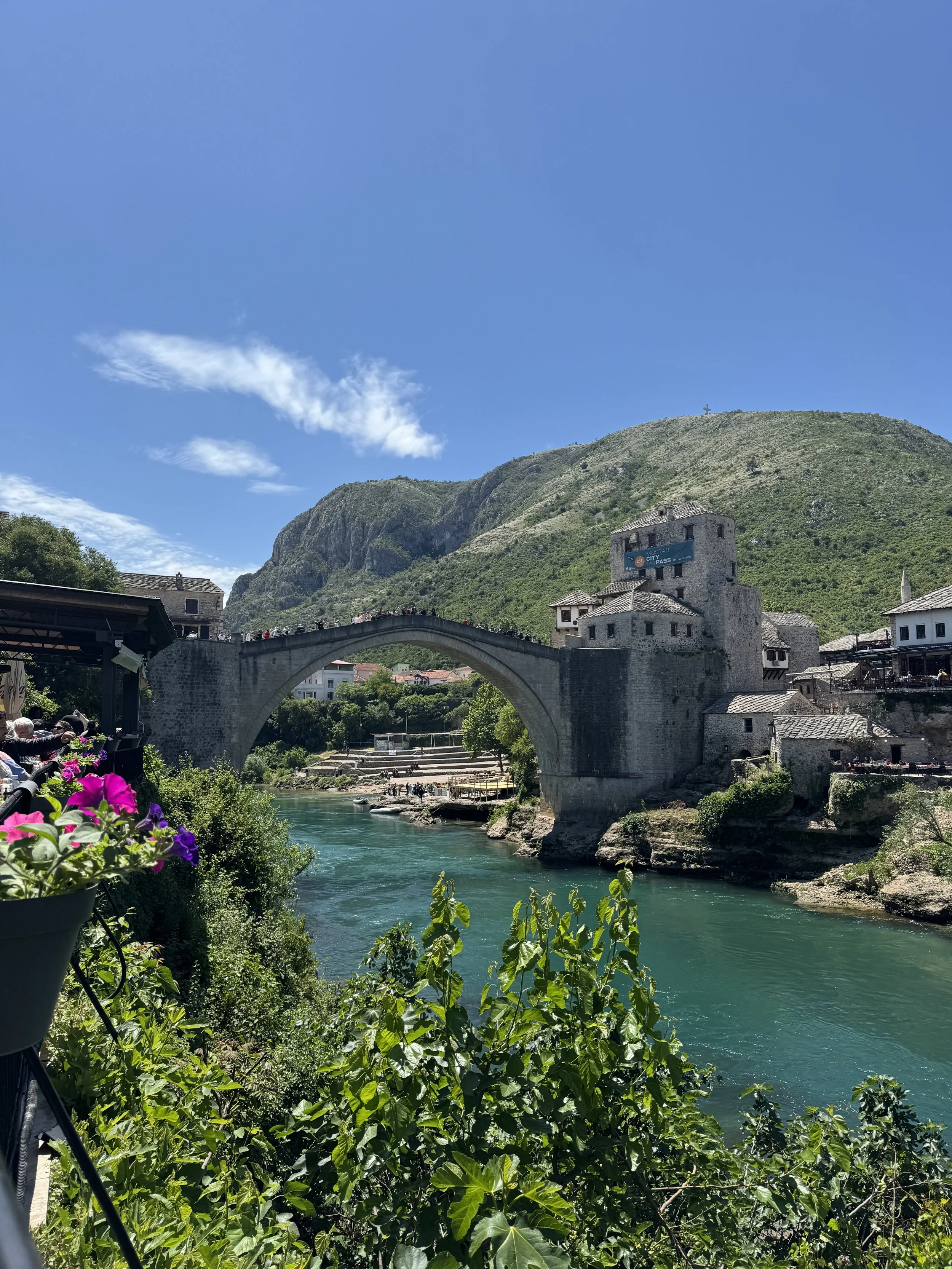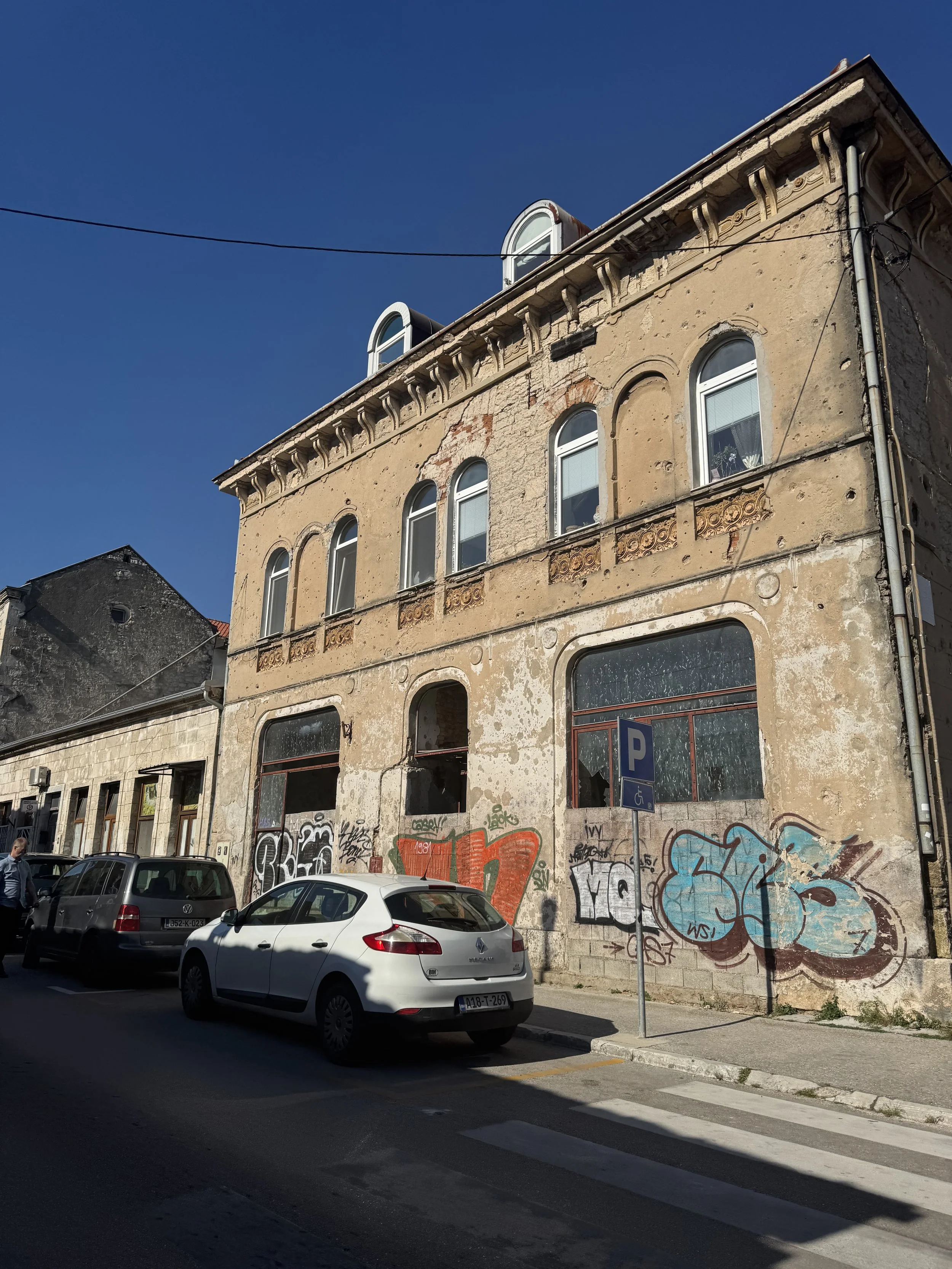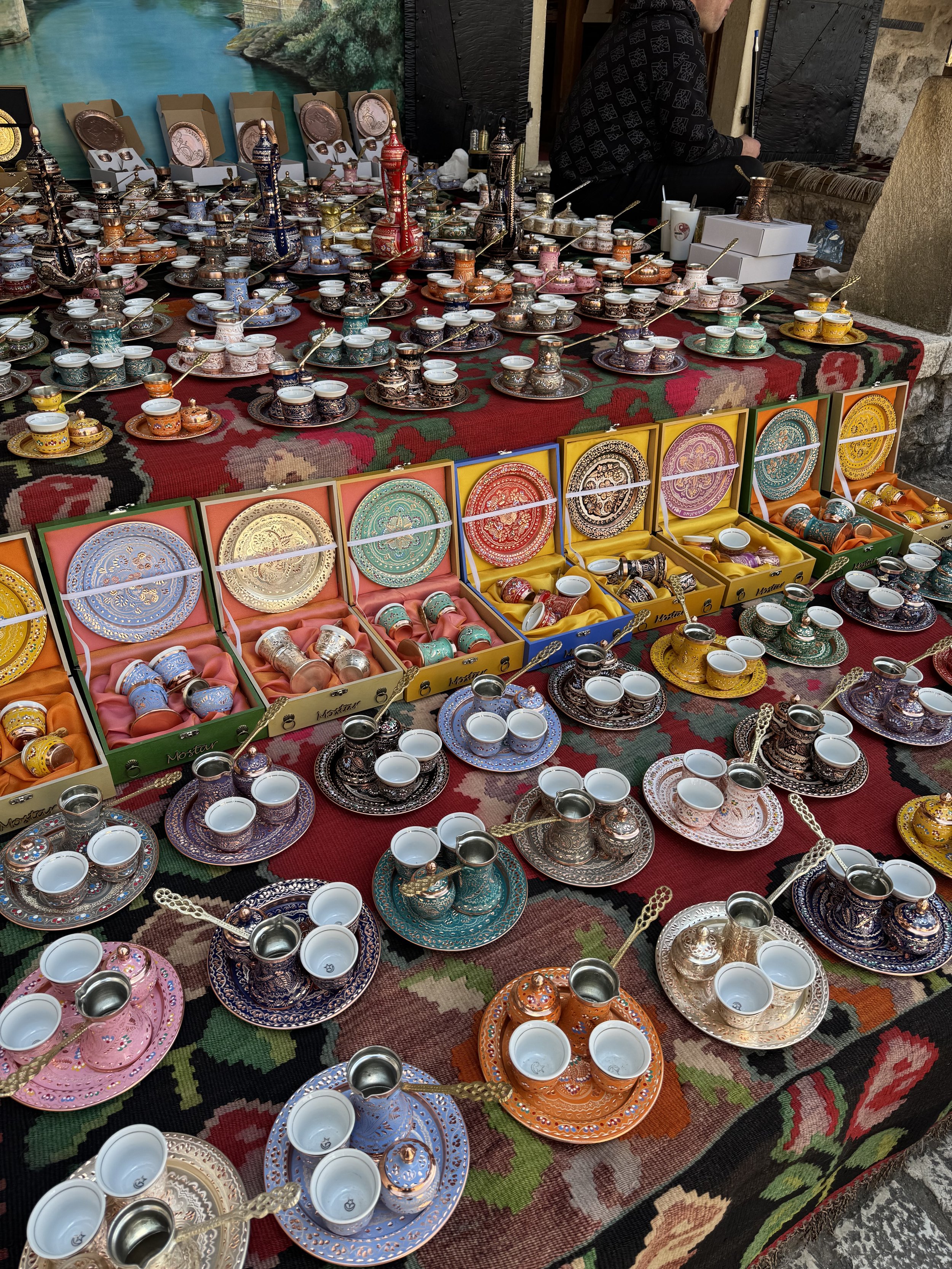Uncovering Unconscious Biases in the Balkans
“The more I traveled, the more I realized that fear makes strangers of people who should be friends” —Shirley MacLaine
The opinions of others clashed with the feelings in my gut on the coach bus to Mostar, Bosnia and Herzegovina—fear and excitement coursing through my body. When I told people I was traveling solo through the Balkans, one of the most common responses was, “Is that safe?”. This question did not sit well with me. Of course, it comes from a place of love and concern, but also from what I believe to be an outdated understanding of the region.
When you Google “Mostar”, your feed is filled with images of emerald water running below a magnificent bridge, but as I walked off the bus, the bridge and river were nowhere in sight. The station was quiet. Stray dogs slept on the bus platforms, and there was only a handful of other tourists around. My backpack acted as a spotlight, highlighting that I was foreign and alone, making me feel vulnerable. The excitement began to drain from my body. To avoid drowning in self-doubt, I quickly threw my bags in my hostel and made my way to the Old Town, convinced that once I saw that beautiful bridge, all my doubts would disappear.
The road below my feet turned to dirt. To my left was a cafe courtyard filled with adults chatting as their children played. To my right was a dilapidated building with bullet holes. Many of the women around me wore hijabs and burkas while my hair flowed past my bare shoulders. Men spoke Arabic-sounding languages to one another from across the street as I passed. Thoughts rattled inside my mind:
“What are they saying?”
“Are they talking about me?”
“Am I being offensive to their culture?”
“Am I safe here?”
With shaky breaths, I continued on the dirt path until it became a beautiful cobblestone road through a bustling Bazaar. Local artwork, jewelry, and Bosnian coffee sets (kahveni takum) brought color and liveliness to the small walkway. With wide eyes and a bustling mind, I moved with the flow of the crowd towards the iconic Stari Most Bridge that I had been anxious to see, and it did not disappoint. The 24-meter limestone bridge stands tall in the Old Town, appearing to have stood for centuries, but it is only about 30 years old. The original bridge, dating back to the 1560s, was unfortunately destroyed by Bosnian Croats during the Bosnian War in the 1990s, along with most of the Old Town.
The Bosnian War was a battle for independence and control of the region between Bosnian Serbs, Bosnian Croats, and the Bosnian government. It was only one of the wars within the conflicts of the Yugoslav Wars.
A local man stood on the bridge’s edge, ready to entertain tourists with the iconic plunge into the frigid Neretva River below. As tourists crowded with phones held high for the best angle, I couldn’t help but feel akin to the performer before me. This is a dangerous stunt, so why does he do it? For the tips, of course, but also the adrenaline, the thrill, the slight fear that ignites the courage to leap. This is how I feel before solo trips; Like I am on the precipice of something bigger. While I hope that something is positive, fear always finds its place in the pit of my stomach. When I heard Arabic singing coming from what seemed like above, that fear made its way back to the front of my mind:
“What was that?”
“Was this some kind of announcement or warning?”
“What were they saying?”
“Am I safe here?”
I came to learn this was a Muslim call to prayer called the adhan that occurs five times a day. While I was filled with relief, the fear resided. I panicked and booked a bus back to Dubrovnik, Croatia–a city full of tourists, a city full of people who looked like me. However, before completely abandoning the country I had only recently set foot in, I took an all-day Herzegovina tour, determined to open my mind to lives that differ from my own.
At the beginning of most tours, the guide usually thanks you for choosing their company. On this tour, our guide, Esmer, thanked us for choosing his country. While over-tourism protests are occurring across major European cities, local Bosnians crave tourism as a major source of income. Throughout the day, Esmer taught us about the country’s history, shared his personal experiences of the war, played popular Bosnian music, and so much more. Towards the end of the tour, he said people tend to ask him more or less the same question: “What do Bosnians think of Croats and Serbs now?”. To which he responds, “I don’t have any problem with the Croats and Serbs…I go to Croatia, I go to Serbia. I have Croats and Serbs in my family. I deeply believe that we can live together. There is a reason why I’m still here”. Now, this may seem fairly simple at first, but it was quite profound after learning about Esmer’s personal experiences during the war. When he was a young child, he and his family were forcefully taken from their home to open-air concentration camps. He and his family were held in one camp for a few days, except for his father—a Bosnian soldier—who was held in a separate camp for over 100 days before finally being released. Even after enduring this traumatic experience, Esmer emphasizes multiple times throughout the tour, “It is not my mission to spread hate about someone.” He goes on to explain his belief that young Bosnians, Croats, and Serbs need to know that “we are not responsible about anything that’s happened here before 30 years [ago]” as most of them were not even born. He believes that they are responsible for what they teach their kids in order to live in harmony, peace, and love. I found this sentiment of peace to be shared throughout the country by locals.
This forced me to sit with the uncomfortable discovery of my unconscious bias. I was surrounded by Arab people, music, languages, architecture, etc., and my brain concluded that I was in danger and not welcome. Once I addressed this bias, put those ideas aside, and truly interacted with the locals, I couldn’t find any truth in my initial concerns. Mostar was one of the most welcoming places I have ever been. I also felt safe in the city, not having to worry about pickpockets or other crimes. Unfortunately, in a lot of Western media, Arab people are portrayed as villains or terrorists. Even in Disney’s Aladdin, Jasmine, Aladdin, and Genie (“the good guys”) have American accents despite being set in an Arab country, while Jafar (“the bad guy”) has an Arabic accent. Portrayals like this are very dangerous. They lead to misconceptions and biases when we are exposed to them enough. I am ashamed to admit that I believed these misconceptions, even though they were unconscious.
Bosnian Muslims taught me so much about peace and kindness. When discussing his beliefs for a peaceful, more united Bosnia & Herzegovina, Esmer said, “If we are not good people, we cannot elect good politicians. We cannot expect changes. That means we have to change our way of thinking”. I think this holds true in the context of elections, but also in life. Exposing myself to people who are different than me, who were portrayed as dangerous, completely changed my way of thinking. It helped me recognize my unconscious biases and uncover the truths of the region and its people. Without that exposure and that breakdown of biases, we cannot expect true change.


